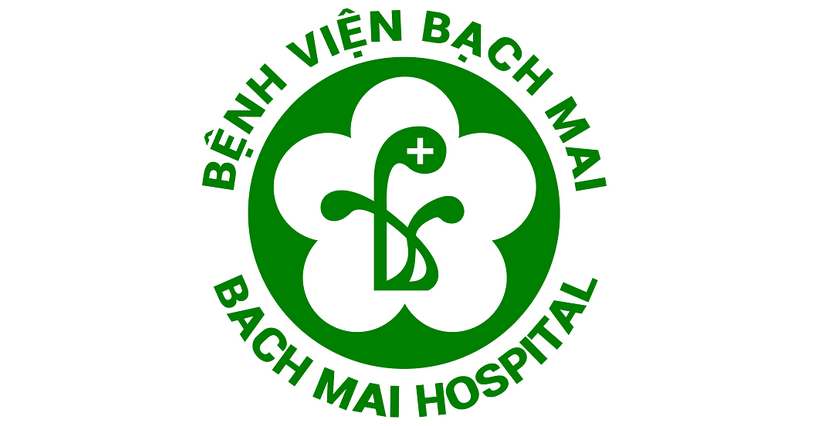Bệnh viện bạch mai * Bach Mai Hospital
Tạp chí Y học lâm sàng * Journal of Clinical Medicine
Website : www.jocm.vn Email : jocm@bachmai.edu.vn Phone : +84947040855
Clinical manifestations, laboratory findings, antimicrobial susceptibility and outcomes of Enterococcus blood stream infection at Bach Mai Hospital and National Hospital for Tropical Diseases
- Mã bài báo : EN0712
- Ngày xuất bản : 29/04/2021
- Số trang : 102-113
- Tác giả : Dam Thi Thanh Tam
- Lượt xem : ( 909 )
https://doi.org/10.52322/jocmbmh.07.en.12
ABSTRACT
Objectives: To describe the clinical features and laboratory characteristics of Enterococcus blood stream infections (BSI) at Bach Mai Hospital and the National Hospital for Tropical Diseases, as well as assess the antibiotic susceptibility and treatment outcomes from 2015 to 2019.
Material and Methods: We conducted a cross-sectional study was carried out on 48 patients diagnosed with Enterococcus bacteremia (19 patients at the Central Hospital for Tropical Diseases, Bach Mai Hospital from January 2015 to July 2019 and 29 patients at National Hospital for Tropical Diseases from August 2018 to July 2019).
Results: The two common pathogenic species of Enterococcus BSI were E. faecalis and E. faecium, with E. faecalis accounted for the highest proportion (47.9%). Fever was the most common symptom with 91.7%. WBC, CRP, CRP-hs, and PCT increased on admission and 20.8% had infective endocarditis. The rate of septic shock was 20.8% of enrolled patients. Among 48 isolates of Enterococcus, antibiotic resistance rates were 40.4% with penicillin, 39.6% with ampicillin, 35.9% with piperacillin, 36.6% with unasyl, 50% with gentamycin, 4.2% with vancomycin, and no bacteria strains resistant to linezolid or teicoplanin. The mortality rate was 16.7%. After 3 days of treatment, the white blood cell count, procalcitonin, and CRP-hs has been decreased statistically.
Conclusion: This is the first study has been conducted among patients with Enterococcus BSI at two largest infectious centers in the northern. The findings might be useful for improving the diagnose and treatment for Enterococcus in Vietnam.
Keywords: Blood stream infection, sepsis, Enterococcus, Vietnam
- Chủ đề : Infectious Diseses
- Loại bài báo : Original Research
- Chuyên nghành : Clinical Medicine
 Thông tin liên hệ : Do Duy Cuong
Thông tin liên hệ : Do Duy Cuong Email : doduy.cuong@bachmai.edu.vn
Email : doduy.cuong@bachmai.edu.vn Địa chỉ : Center for Tropical Diseases, Bach Mai Hospital
Địa chỉ : Center for Tropical Diseases, Bach Mai Hospital
- Từ khóa :
- Blood stream infection
- sepsis
- Enterococcus
- Vietnam
Bài báo liên quan
- A systematic review of scope of studies related to antimicrobial resistance and antibiotic use among children in Vietnam
- Ultrasound in the diagnosis of infectious and tropical diseases: A literature review
- A narrative review of clinical management of Clostridium difficile in hospital setting
- Clinical manifestations, laboratory findings, antimicrobial susceptibility and outcomes of Enterococcus blood stream infection at Bach Mai Hospital and National Hospital for Tropical Diseases
- Clinical characteristics, laboratory findings and outcomes of Toxoplasma gondii infection in HIV/AIDS patients at Bach Mai Hospital
- Mortality rate and causes of death among HIV patients at Bach Mai Hospital: A retrospective analysis from 2009-2018
- HIV-associated neurocognitive disorder among long-term HIV/AIDS patients under antiretroviral therapy at Bach Mai Hospital
- Evaluation of the efficacy of Sofosbuvir/Daclatasvir regimen in treating HCV/HIV co-infected patients
- Clinical, laboratory characteristics, and outcomes of murine typhus patients in Vietnam: A multicenter prospective cohort study
- Low prevalence of SARS-CoV-2 antibodies among high-risks health care workers at a tertiary referral hospital in Vietnam
- Clinical features and factors associated with outcomes of COVID-19 patients in Vietnam: a retrospective observation analysis
Bài viết mới nhất
- Tạp chí YHLS BVBM được phê duyệt mức điểm 0,75 trong Danh mục tạp chí khoa học được tính điểm năm 2024 của HĐGSNN
- Thư mời gửi bản thảo cho số tiếng Anh năm 2023 của Tạp chí Y học lâm sàng
- Chúc mừng Ngày Báo chí Cách mạng Việt Nam 21/06
- Giải thưởng Đặng Văn Chung: Tôn vinh giá trị sáng tạo và Nghiên cứu khoa học
- Quy định về định dạng bài báo theo định dạng chuẩn quốc tế

 File toàn văn
File toàn văn



